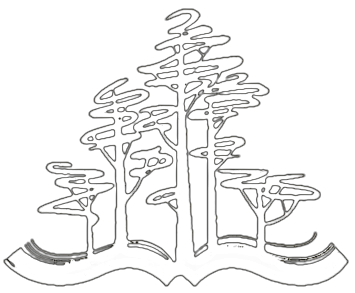Summer School on the Russian Literature. 2024.
№ 2-3
The article refers to the consideration of the metapoetic discourse in the lyrics by A. P. Tsvetkov through the analysis of demiurgic images system, namely: literary figures, representatives of the film industry, musicians and painters. The purpose of the article is to describe the main features of the poet’s artistic world, revealed through the analysis of images of demiurges.
Keywords: „Moscow time“, A. Tsvetkov, metapoetic discourse, a system of demiurgic images, poet’s artistic world.
Keywords: „Moscow time“, A. Tsvetkov, metapoetic discourse, a system of demiurgic images, poet’s artistic world.
The demiurgic potential of artists in the metapoetics of Alexei Tsvetkov
Alena Korableva
The Russian literature of early XIXth century has many mythological characters, which named as „roussalka“, „siren“, „nymph“, „ondine“. It seems as if all of them trace its’ origins to the common type of the character, „female water entity“ that the Russian and foreign cultures have. On account of its’ popularity, the characters with the different genesis influence the representations of Russian Mermaid. The article deals with the motives that will have an impact on the formation of its figure later.
Keywords: mermaid, siren, nymph, ondine, water maiden, mythological character.
Keywords: mermaid, siren, nymph, ondine, water maiden, mythological character.
Julia Dolgikh
The mermaids, sirens, nymphs and ondines: the fiction representations of the female water spirits in the Russian literature of early XIXth century
The work of the major writer of the first wave of Russian emigration P. Krasnov is considered in the article in relation to the anti-nihilistic prose of the 19th century. It is revealed that the traditions of anti-nihilistic literature had a significant influence on the works of Krasnov and other authors of the Russian diaspora (I. Shmelev, M. Aldanov). It is established that addressing the problem of nihilism acquires a new function for Krasnov, allowing him to speak out about the causes of the revolution, the past, as well as the present and future of Russia and emigration.
Keywords: literature of Russian abroad, anti-nihilistic novel, white emigration, P. Krasnov.
Keywords: literature of Russian abroad, anti-nihilistic novel, white emigration, P. Krasnov.
The anti-nihilistic line of Russian literature in creativity of P. Krasnov
Andrey Petrov
The article is devoted to the study of the northern Russian lists of the Consolidated Patericon and the tales of robbers presented in them. The author presents the results of a comparative study of the olonetsk and pechora lists of the Consolidated Patericon, as well as a textual study of the tales of robbers from the Ust-Tsilemsky new collection of the IRLI RAN and the collection of the Olonetsk theological seminary of the RSL.
Keywords: Consolidated patericon, tales of robbers, olonetsk and pechora copies.
Keywords: Consolidated patericon, tales of robbers, olonetsk and pechora copies.
Ul’yana Burankovа
Tales of robbers in the Consolidated Patericon
The article analyzes V. Sorokin’s short story „Nastya“ through the prism of ritual optics. The ritual component of the story is mentioned in works about „Nastya“, but is not analyzed in detail, although the initiation (rebaking) rite, which the main heroine faces, seem to be a cultural code important for understanding this text. Such an interpretation does not contradict the established interpretation that suggests the idea of young people being „devoured“ by the time, era, and family, but rather deepens it, since the underlying ritual logic that motivates the characters’ behavior serves as a convenient language for illustrating patterns of social behavior.
Keywords: V. G. Sorokin, cannibalism, initiation rite, the rite of rebaking, „Nastya“.
Keywords: V. G. Sorokin, cannibalism, initiation rite, the rite of rebaking, „Nastya“.
„Newly made“ Nastya: Rite of Initiation in V. Sorokin’s short story
Madina Mokhammad
The article presents an analysis of the image of Yevgeny Baratynsky in Viktor Krivulin’s novel „Shmon“ through the prism of the conflict of two discourses — artistic and scientific. This opposition allows us to see how the understanding of the figure of Baratynsky, one of the most significant authors for a representative of the „second culture“, changes in Krivulin’s work.
Keywords: V. B. Krivulin, G. Hetso, E. A. Baratynsky, „Shmon“, biography, scientific discourse, parody.
Keywords: V. B. Krivulin, G. Hetso, E. A. Baratynsky, „Shmon“, biography, scientific discourse, parody.
How to write a novel about Yevgeny Baratynsky: the conflict of artistic and scientific discourses in Viktor Krivulin’s „Shmon“
Anastasia Kolchina
The article attempts to decipher the „quotations“ in the „Poem of Epigraphs“ by Alexey Khvostenko, and also examines the functioning of epigraphs in the text.
Keywords: Khvostenko, underground culture, Leningrad of the 1960s, „Poem of epigraphs“, functions of epigraphs.
Keywords: Khvostenko, underground culture, Leningrad of the 1960s, „Poem of epigraphs“, functions of epigraphs.
Vicktoriya Vlassova
„I was accused of loving…“: About Alexey Khvostenko’s „Poem of Epigraphs“
By „Internationals“ in the annotated article we mean three texts by V. V. Mayakovsky: „III International“ (1920), „IV International“ (1922), and „The Fifth International“ (1922). As a cycle united by a single theme and a single principle of constructing titles implying seriality these texts have not been considered before. One of the fundamental principles in the structure of Mayakovsky’s artistic world, from our point of view, is the necessity of recreating the world in relation to certain socio-historical coordinates. Thus, a lyrical utterance cannot be completed, and there is a need for reassertion. The paper attempts to describe the complexly organised continuous model of the artistic world that exists in the poet's works on the material of several works.
Keywords: Vladimir Mayakovsky, „Internationals“, „III International“, „IV International“, „The Fifth International“, artistic world.
Keywords: Vladimir Mayakovsky, „Internationals“, „III International“, „IV International“, „The Fifth International“, artistic world.
Lyubov Baryshnikova
Description of the model of the artistic world in Mayakovsky’s „Internationals“
The article is dedicated to a structural-semiotic analysis of one episode from the 1967 full-length animated Disney film The Jungle Book in the context of the work as a whole. The film’s genre can be defined as a variation of the Bildungsroman (coming-of-age novel) and its central theme, accordingly, as the motif of „mimicking, imitation, aping.“ In this light, the episode under analysis — the song-and-dance of almost all of the film's characters, centering around the ape King Louie, — can be seen as a quintessentially auto-meta-poetic celebration of „selfless, purely aesthetic mimesis.“
Keywords: story, episode, theme, motif, dance, song, imitation, power, apes, monkeys, archetypes.
Keywords: story, episode, theme, motif, dance, song, imitation, power, apes, monkeys, archetypes.
Alexander Zholkovsky
„I WANNA BE LIKE YOU!..“
On the mimetic poetics of Walt Disney’s The Jungle Book (1967)
On the mimetic poetics of Walt Disney’s The Jungle Book (1967)
The article examines the discussions about the fate and role of the Higher State Literary Courses in the design of Soviet literary education. Using the example of the 1929 issues of Literaturnaya Gazeta and with reference to earlier materials from other sources, including newspapers and archives, the article explores how the reputation of the Higher State Literary Courses was formed, what influenced it, and how the role of the institution was understood in the year of its liquidation.
Keywords: Higher State Literary Courses, HSLC, Literaturnaya Gazeta, Literary Education, Literary University.
Keywords: Higher State Literary Courses, HSLC, Literaturnaya Gazeta, Literary Education, Literary University.
Discussions about the HSLC on the pages of Literaturnaya Gazeta
Kirill Kochetov
The paper considers the lifetime critical reviews of the performances of Daniil Kharms and other members of the avant-garde groups, as well as partly of his children’s works. The review is accompanied by a detailed commentary based on archival materials. Particular attention is paid to the ideological struggle in the field of children’s literature of the USSR in the late 1920s and 1930s and its influence on criticism.
Keywords: Kharms, OBERIU, RAPP, Actions, Criticism, Children’s Literature
Keywords: Kharms, OBERIU, RAPP, Actions, Criticism, Children’s Literature
Daniil Kharms and lifetime criticism
Alexander Kobrinsky
The article is devoted to the analysis of V. T. Shalamov’s poetry against the background of poetry by B. L. Pasternak. The main subject of the research is a poetry cycle dedicated to Pasternak which consists of three poems written during the poet’s lifetime and eight one’s created on his death. Despite the common opinion that Shalamov is free from other poet’s influences, the research has shown that each poem has several sources and references to the texts by Pasternak and other authors. References to the subjects discussed in the correspondence between the poets and direct answers to Pasternak have especially drawn our attention as long as the reception of the whole poetic world created by Pasternak in his works. In many ways the article only outlines the prospects for further comparative analysis of the poetry by Shalamov and Pasternak.
Keywords: B. L. Pasternak, V. T. Shalamov, allusion, „poetic world“, „ready-made item“.
Keywords: B. L. Pasternak, V. T. Shalamov, allusion, „poetic world“, „ready-made item“.
„Poems dedicated to Pasternak“: poetic dialog between V. T. Shalamov and B. L. Pasternak
Maria Stovbur
Contacts
summerschool@list.ru
В оформлении сайта использованы материалы Freepik.


